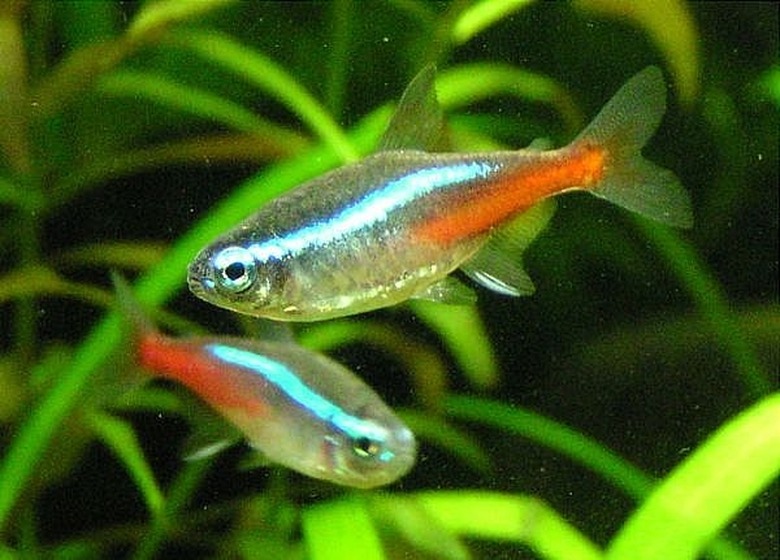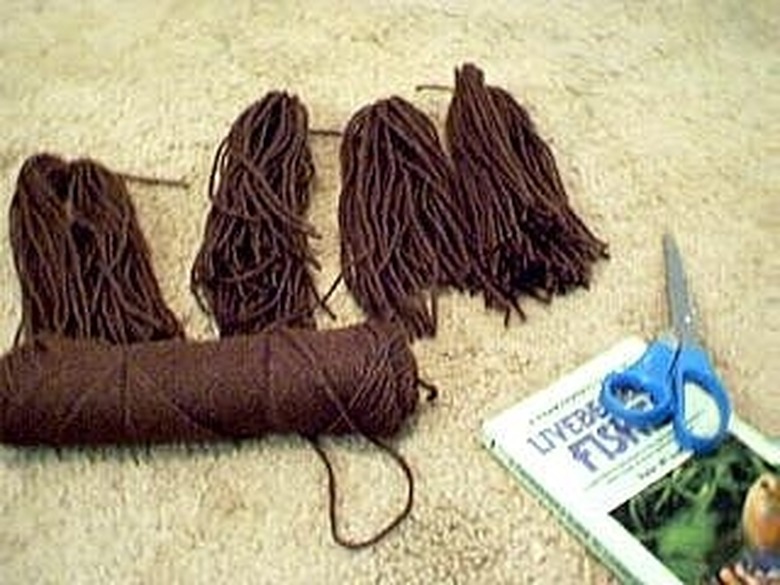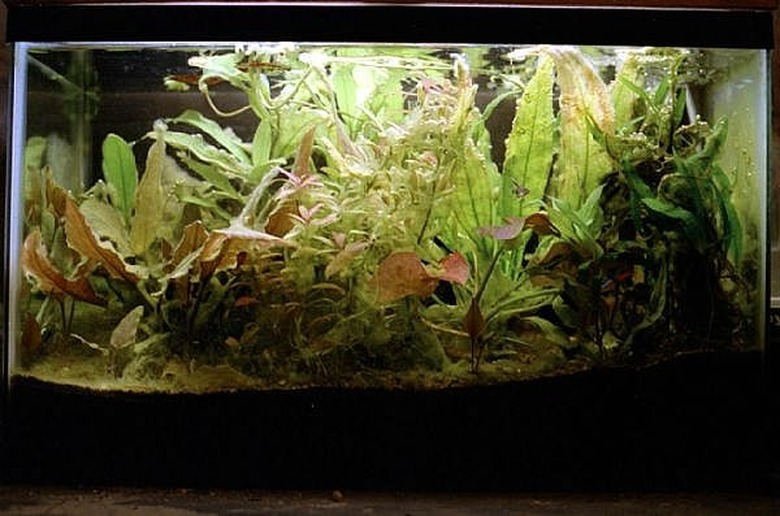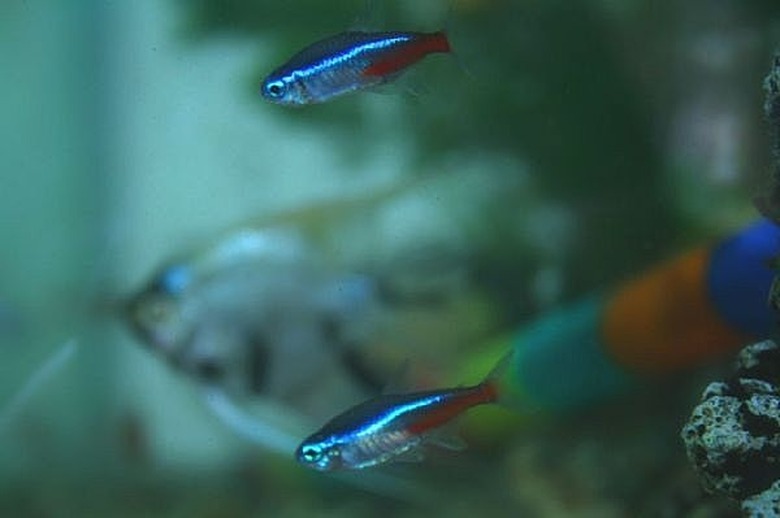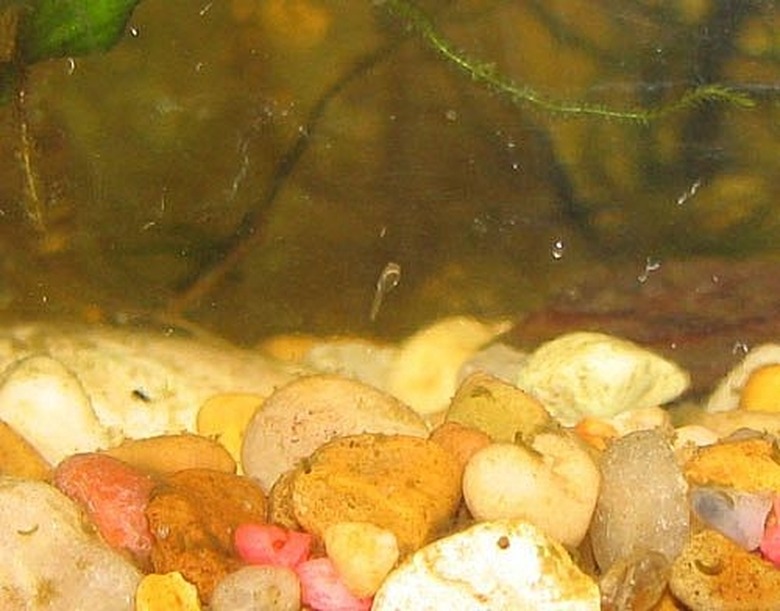How To Breed The Neon Tetra
Things Needed
-
Five-gallon aquarium
-
Small sponge filter
-
Small aquarium air pump
-
25W aquarium heater
-
Aquarium peat moss
-
Several yarn spawning mops
-
Meaty fish foods
-
Several Neon Tetras
Tip
Clean, conditioned water is essential! Live foods are essential! Prepare ahead of time. See my other articles on how to raise your own live fish foods.
Breeding the Neon Tetra, one of the most beautiful and common tropical aquarium fish, can be done right in your own tank. A small school of Neon Tetras can produce hundreds of eggs a week; although many times the eggs are eaten, fail to develop, or the Neon Tetra fry are eaten before they are large enough to be seen. Breeding and raising the Neon Tetra successfully is difficult, however it can be done if the proper conditions and care are provided.
Step 1
CONDITION YOUR TANK WATER — The Neon Tetra originates in the Amazon basin, and breed best in soft, acidic water. You can either collect rainwater, or I use reverse-osmosis water. Soak your peat moss (see my links for where to get it) in the water for several weeks before any fish are introduced. Run the filter in the aging water to start its bacterial colony.
Step 2
SET UP YOUR TANK — Pour the aged water into the tank and set the heater to maintain 70 to 72F. Place the spawning mops on the bottom of the tank and put the aged sponge filter in as well, with just a trickle of air running. Tank lighting is not necessary. Put the future parents into the tank.
Step 3
START AN INFUSORIA CULTURE – The newly hatched Neon Tetra fry will only be able to eat microscopic food for the first few days. I have an article on how to culture infusoria to feed them. Start the culture now.
Step 4
CONDITION YOUR FISH — To get Neon Tetras in breeding condition, they must be fed meaty, live foods. I breed white or grindal worms for this purpose, and also hatch brine shrimp as well. See my other articles on these foods. Allow the Neon Tetras to eat as much of these foods as they will consume until they are nice and fat. Change 25% to 50% of the tank water each week.
Step 5
WATCH FOR SPAWNING BEHAVIOR — The male Neon Tetra will 'court' the female by swimming around her in a square pattern, using short jerky movements followed by periods of motionlessness. The female is recognizable by her larger belly, which should be full of eggs.
Step 6
WATCH FOR EGGS — The reduced girth of the female will be the only easily recognized sign of completed spawning activity. The eggs are quite small and, with close inspection, can be seen lying on the bottom and among the mops. When you feel that the day's spawning is completed, remove the adults to another tank.
Step 7
REMOVE THE MOPS AND COVER THE TANK — Gently shake the mops under water and the eggs will fall to the bottom. Remove the mops. Cover the tank to exclude light, which can be harmful to eggs and newborn fry. Make sure your infusoria is growing.
Step 8
WATCH FOR THE EGGS TO HATCH — The eggs will hatch in about 36 hours. The tiny Neon Tetra fry can be seen wiggling on the bottom of the tank. It takes 4 or 5 more days before the fry are free-swimming and can be fed.
Step 9
FEED THE GROWING FRY — After the fry are free-swimming, begin by feeding them about 1/2 cup of infusoria-rich water twice a day. After a couple days, add small living foods like vinegar eels or microworms to their diet. After about a week, newly-hatched brine shrimp can be fed. Make sure the fry always have enough to eat, but do not foul the water!
Step 10
MAINTAIN WATER QUALITY — When the Neon Tetra fry are about two weeks old, begin to change about 1 quart of water every other day. The fry are very sensitive to bad water conditions, so the water must be kept clean and fresh. After a few weeks, the fry should be showing their blue stripe, and you can decrease the frequency and increase the amount of water changes.
